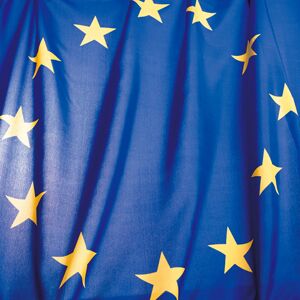
More Europeans Feeling “European”
Among European citizens, feelings of being “European” are growing, according to opinion polls. The ancient notion of one Europe for all Europeans is increasingly becoming vogue.
After examining 1996-2004 reports from the European Commission’s Eurobarometer, which is the public opinion analysis sector of the European Commission, sociologists found that the feeling of “Europeanness” is on the rise. Within the reports cited, sociologists examined the responses to the question of whether or not the respondents “feel, for example, only Italian; Italian and European; European and Italian; or only European” (EUobserver.com, October 23). The results of the study were published in the journal Science and can be read here.
According to EUobserver.com,
In 2004, 58 percent of those surveyed had some sense of feeling European, a number which is set to rise to 68.5 percent by 2030 if the current trend continues, according to the study. …
Within the EU-15, Luxembourgers were the most “European,” with a 78 percent average between 1996-2004 admitting they felt at least a partial sense of European identity. Italians came second at 72 percent, followed by the French (68 percent) and the Spanish (64 percent) while at the other end of the scale Swedes (45 percent), Finns (43 percent) and Britons (40 percent) felt less European.
The report also compared the younger generation against the older generation, and deciphered that the younger generation was more likely to agree to both a national and European identity, whereas the older generation were more likely to identify themselves with only their national identity. If this trend continues uninterrupted, more and more Europeans will identify themselves as European as the older, more nationally oriented generation dies out.
Within the report, the authors examined some of the causes of the greater trend toward a feeling of “Europeanness,” citing one of particular note, which is, “expanding media impact coming from and reporting about the European level …” (ibid.).
In the past, the EU has used mass media to try and convince voters that Europe is good for Europeans. Now it appears the European Union is planning to use mass media on an even greater scale to positively influence public opinion toward the Union. An October 9 European Parliament press release commented on a European Commission white paper on a European communication policy, and the Culture Committee’s reaction to it:
The white paper was one of the Commission’s initiatives aimed at improving the EU’s interaction with its citizens following the “no” votes in referendums on the proposed EU constitution in France and the Netherlands. The committee said that to reach citizens it was important to communicate better and to show the relevance of EU decisions on their daily life. Through cooperation with regional and local institutions, emphasis should be placed on communicating regularly with citizens about the relevant regional and local projects in which the EU had participated. National public television channels should be encouraged to properly … inform citizens of what is happening at EU level ….
As the European Union strives to bring attention to its goals, purposes and usefulness, we can expect mass media to play a greater role in breaking down sensitivities toward the EU, and resurrecting the notion of one Europe for all Europeans.
